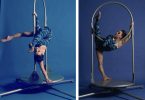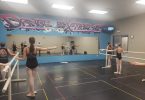From an early age, wherever I went I was dancing. I trained classically in ballet throughout my childhood and early adulthood, and with each year my passion grew stronger. Unfortunately, so did the wear and tear on my body. And as injuries mounted, I was forced out of the studio and chose to pursue a career in physiotherapy. I knew that I was no longer going to be a prima ballerina, but I wanted to ensure that other young dancers did not face the same obstacles and countless injuries I had experienced. My time in the dance studio was not in vein, but instead helped create a strong foundation in my role as a sport physiotherapist.
Though dance may not be viewed as a mainstream sport, young dancers place high physical requirements and demands on their body, not unlike other athletes. A special combination of strength, flexibility and motor control are all required in a dancer. Small and often subtle changes or compensations in movement will easily lead to injury and delay recovery. It is critical that these small issues are caught early before injuries begin to mount. A quick screening by a physiotherapist can be critical in this process and lead to a lifetime of healthy dancing!
My advice for the injured dancer
• Breathe and don’t be a hero. If you continue to dance when you have an injury or are in pain, you are much more likely to make that injury worse and lengthen your rehabilitation time.
• Find a physiotherapist who knows and understands a dancer’s body and the demands for return to activity.
• Stay in the studio while you rehabilitate your injury! Your physiotherapist should be able to provide you with exercises to keep the rest of your body in shape while you watch. Being in the studio is good for you, both physically and mentally.
• Don’t go back too soon! Many dancers are worried that their teachers will be upset with them for taking too much time off. But often, teachers would rather you take the time to heal properly and prevent further or reoccurring injuries.
• Listen to the advice of the medical professionals. If your therapist or doctor makes recommendations that you don’t like or agree with, ask them more questions and clarify why those are their suggestions. They will be keeping your body’s best interest in mind – and you should too!
Emma Jack is a physiotherapist at ReActive Physiotherapy who specializes in working with dancers. She has also worked with Hockey Canada.
Story submitted by Emma Jack







